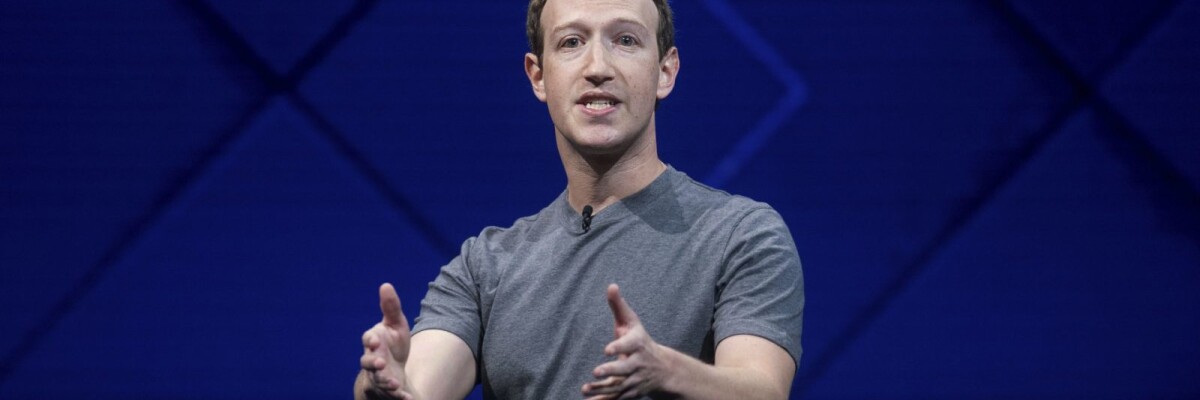2018 was the most difficult year for Facebook. Now, the company has announced a complete overhaul of its confidentiality and safety policies. This is not about customer experience - it’s a last-ditch effort to save the company
Many people have already read Mark Zuckerberg’s article, A Privacy-Focused Vision for Social Networking. In any case, most of you have read the news about Facebook’s complete transformation of their approach towards privacy, confidentiality, and treatment of private user data. The article is almost a manifesto, with Zuckerberg talking about a completely new and utterly unexpected development strategy for Facebook.
In this long statement, the head of the company offers a thorough explanation of such crucial topics as encryption, user safety, and data storage. Most people will agree that modern communication tools should guarantee genuinely private communication, that these instruments should be extremely safe to use, and users should have a say in how their data is used.
Thus, the company has defined its priorities: extremely well protected messengers with end-to-end encryption and a focus on users and user data safety. Zuckerberg promises not to build data centres in countries that are notorious for human rights violation. But let’s not forget that we’re talking about Facebook Inc.
If it’s your first time reading one of Zuckerberg’s statements, you might think that Facebook, Instagram and WhatsApp users can expect to see positive changes ahead. Personally, I don’t feel optimistic about these promises. Let me tell you why.
Context
The first thing that comes to mind when reading these kinds of claims from the head of this major Internet giant is this: why would Zuckerberg propose such radical changes in company policy right now?
Today, Facebook is a leader in the number (and magnitude) of scandals related to data leaks and the use of questionable practices in terms of confidentiality and personal data.
2018 was one of the most difficult years in Facebook’s history. For example, the Cambridge Analytica scandal cost the company around $80 billion. There were several other large data leaks last year, and the British Parliament released an internal Facebook conversation that revealed the company’s plans to sell user data to developers. Zuckerberg’s company is also notorious for its harsh attitude towards competitors. One of Zuckerberg’s messages from the leaked conversation that is currently making the rounds is: «This might be good for the world, but it’s bad for us.»
And yet, when a significant profit is involved, Facebook is not above collaborating with other market players. Did you know about the federal investigation into Facebook’s activities? That’s right — a criminal case has been opened because the company was selling user data access to other corporations, such as Apple and Amazon.
And one more thing. Facebook decided not to host their servers in countries with weak records on human rights. This sounds great on paper. Almost like Facebook is also interested in confidentiality and freedom, as if they have strong principles they would like to enforce. And it could really make the lives of human rights activists, dissidents and other at-risk people much easier. With this policy, power structures in these countries will no longer have physical access to servers hosting messages (even encrypted ones). But why now? Why is this happening at such a politically convenient moment? The United States’ stand-off with Russia, the trade war with China. Sure, it’s great that the Iranian government won’t get access to my data. But what about the FBI or NSA?
Anyway, I’m not surprised that Zuckerberg picked this moment to come back to the light side.
All these pretty words about uniting people, making conversations private and secure, and so on, really came in handy in this crisis situation. I think that with Facebook’s frantic race to retain and acquire new users — since their US audience went down by 15 million since 2017 — the company had no other options: their decision to move in the direction of increased privacy is the best one, especially considering today’s IT landscape.
The situation
It’s worth noting that the Zuckerberg’s company is one of the largest advertising platforms on the planet, and so ads take up the lion’s share of its income. And we’re not talking about the usual ad banners on their website, either: this is a complex system that collects an enormous amount of user data to display the most personally relevant ads for each individual user.
It’s a convenient system. But Facebook doesn’t always feel the need to ask for permission to share your data with other companies or intelligence services. And something tells me that you won’t find settings like ‘Do not use my personal data for the company’s financial gain’ or ‘Do not illegally read my messages’ on your account page.
So what is Zuckerberg offering us?
In his statement, he repeatedly compares a traditional social network to a town square that is available to everyone, while messengers are like living rooms for private conversations. Well, Mark, it’s a nice allegory. Sure, we know that messengers are cool and convenient. But we’re worried that our data will be sold to advertisers or leaked to special services. Let me remind you that the person who wrote this charming text about the new private Facebook also considered selling user data to external developers. In the end, the company decided on a different policy for collaborating with developers, but they did end up selling data to other companies, which is what prompted an investigation into Facebook’s activities (see above).
Seasoned users of Zuckerberg’s social network probably have a number of questions. Let’s set aside the issue of how a company with an atrocious user data policy plans to become the best in this respect. This is probably possible in theory. But the question is: how will Facebook make money now? From what I’ve gathered, Zuckerberg has always made a point of keeping the main service — the social network — free for its users. A premium private messenger? I doubt it. Facebook’s business model was always based on offering free communication tools to its users, in exchange for an enormous user base, which became the company’s main resource. Some kind of monetization — such as business accounts in messenger, something already offered by WhatsApp — might bring in some revenue. But this is definitely not the kind of money that would keep Facebook afloat.
Anyway, the question of Facebook’s survival with severe limitations to its advertising platform’s capabilities remains unanswered. For example, the company is already getting rid of filtering by nationality, gender or age for its targeted ads.
On the one hand, we can see the results of public outrage: people don’t like it when companies make money off their data. But it’s also worth noting that Facebook is facing ever growing competition. These days, building private communication tools is a trendy and profitable business. Most companies support this trend, which is generally good news for everyone.
Here’s another curious point that illustrates Zuckerberg’s ability to play nice when the company’s in crisis and present things that benefit him personally as universal advantages. I’m talking about the reduced storage period for Facebook data, and the fact that you will be able to individually adjust the duration of this period for different types of data. For example, media files might be relevant for several months or even years, while messages are usually only needed for instant sharing of information and can be deleted after a few hours or even minutes. So Facebook decided that ‘it’s important to keep information around for shorter periods of time.’ Again, this sounds good. The company promises to add a feature that will allow users to set a time limit on individual messages, after which they will disappear. But this policy is also very convenient in terms of optimizing storage space in Facebook’s data centres. I think that in this case Zuckerberg expertly presents a profitable solution for his company under the guise of concern for user experience. And all this is given in the context of safety and privacy.
It might appear that the company has become so friendly that users will get an unprecedented level of freedom of communication and control over their data. But let’s not forget about something called user lock-in. Practically any platform is built in a way that makes it uncomfortable for its users to switch to similar services from other providers, so they wouldn’t switch to a different platform without any valid reasons. So users are locked-in and forced to act within the framework enforced by the company in its services. Apple’s ecosystem is a classic example of this.
And yet Zuckerberg claims that there will be no more problems if one user is accustomed to messaging in Instagram, while the other prefers Facebook. Everything will be united into a single global platform that will even allow users to send each other text messages. A solution to user lock-in? Not quite. On the contrary, it’s an even greater lock-in, because when Facebook services become more convenient, users will remain within a single corporation’s ecosystem.
A lot of what Zuckerberg has written looks like an attempt to remain competitive while saving face. He is presenting long implemented and well-known opportunities as some kind of extraordinary innovation. For example, companies working through messengers that belong to Facebook will be able to share their phone number with sellers. This isn’t the newest idea. For example, this option was always available on Telegram.
What is the result?
In conclusion, I will tell you why endless data leaks, scandals, and user outrage will continue to plague Facebook.
If you have finished reading Zuckerberg’s text, you’ve reached the part where he says that Facebook will start tracking negative behavior patterns, so you will understand why we can forget about everything he wrote before that.
The phrase ‘we are committed to consulting with experts’ should be noted separately — it gives Zuckerberg a lot of room for free play. What’s to stop him from saying that although he wanted to make everything private and safe, experts went against it because of terrorist threats, and they had to make some concessions?
Don’t get me wrong. This isn’t about my personal dislike towards Zuckerberg. But it’s natural that in any market, market relations prevail, so company profits and losses take precedence over user interests. Keep this in mind when analyzing public statements of this kind, because people never talk poorly about themselves.
For now, I think, the main takeaway from Zuckerberg’s manifesto is that we finally know how much it costs for Facebook to completely change its strategy — approximately negative $80 billion per year.
Share this with your friends!






Be the first to comment
Please log in to comment